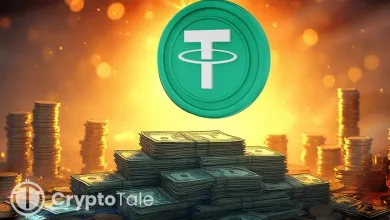PNC Launches Direct Bitcoin Trading as Wall Street Tests New Paths

- PNC builds direct Bitcoin access for private clients through new integrated rails.
- Banks move toward digital asset structures while advisers explore secure routes.
- Coinbase supplies the core system that enables broad bitcoin use within PNC.
PNC Bank launched direct spot bitcoin trading for eligible PNC Private Bank clients, becoming the first major U.S. bank to offer native bitcoin access through its digital banking platform. The service allows qualified private banking clients to buy, hold, and sell bitcoin inside PNC’s system without external exchanges. The rollout uses Coinbase’s Crypto-as-a-Service infrastructure, embedding execution, custody, and settlement inside PNC’s Portfolio View interface.
This move follows a strategic partnership announced in July and sets a new stage for banks that now test digital-asset rails directly inside wealth-management systems. The development arrives as large U.S. banks reevaluate their approaches to crypto exposure, creating a new model that may define the next era of institutional Bitcoin adoption.
Direct Trading Enters Private Banking Platforms
PNC offers bitcoin trading inside its Private Bank Online platform, allowing clients to manage crypto alongside traditional holdings. The structure removes the need for separate exchange accounts. Transitioning into this model now simplifies account oversight for high- and ultra-high-net-worth clients who use PNC’s wealth platform across more than 100 offices nationwide.
Clients can fund purchases through existing checking and investment accounts, which creates fewer operational steps and reduces fragmentation across multiple financial systems. Chairman and CEO William Demchak said, “As client interest in digital assets continues to grow, our responsibility is to offer secure and well-designed options that fit within the broader context of their financial lives.”
He added that the collaboration offers access “in a controlled and familiar environment,” matching PNC’s regulatory and risk standards without requiring clients to leave the bank’s ecosystem.
Coinbase Institutional co-CEO Brett Tejpaul told sources that the arrangement shows how banks and crypto-native companies can work together to expand digital-asset access with strong compliance. He compared Coinbase’s role to cloud providers such as Amazon Web Services, supplying essential infrastructure while banks manage client service channels.
Wall Street Signals a Shift Toward Native Bitcoin Rails
PNC’s move arrives as major U.S. banks explore new crypto pathways beyond ETFs. The approach differs from earlier periods when institutions relied only on indirect exposure, such as funds and derivatives. Last week, Bank of America allowed 15,000 advisers to recommend 1% to 4% client allocations to crypto through regulated bitcoin ETFs from Bitwise, Fidelity, Grayscale, and BlackRock.
These developments reveal a coordinated trend: banks now prepare to integrate tokenized structures, custody rails, and direct asset access inside their wealth divisions. The structural nature of PNC’s rollout raises a central question: Is this the beginning of full bitcoin integration inside traditional wealth-management systems?
Several banks recently tested pilot programs with Coinbase, creating early indications of a broader institutional transition toward native digital-asset operations.
Industry analysts note that PNC previously offered crypto only through ETFs, so this step marks its first move into direct spot trading with internal operational controls.
PNC executives stated that this launch is part of an early phase in a much larger digital-asset strategy. They confirmed plans to extend access beyond private-bank clients. Future phases aim to serve nonprofits, endowments, foundations, and other institutional investors that use the bank’s advisory platforms.
When combined with rising adviser demand across Wall Street, the model may establish a long-term blueprint for integrating bitcoin into mainstream financial channels.
Related: Saylor Renews Bitcoin Banking Vision as Strategy Buys More BTC
A New Framework for Wealth-Management Technology
Banks now experiment with deeper digital-asset integration, which may eventually allow clients to hold bitcoin alongside equities, bonds, and alternatives. This shift mirrors earlier transitions into ETFs.
PNC’s adoption of Coinbase’s CaaS platform demonstrates how institutional rails evolve to meet rising demand for direct crypto exposure inside trusted financial interfaces. The launch also gives clients a single environment for traditional and digital assets, which may reduce operational complexity across wealth-management structures.
PNC and Coinbase confirmed that the bank maintains the client relationship, while Coinbase provides the technology and custody layer supporting every transaction.
This approach creates a clear separation of duties that may encourage broader institutional adoption across other banks. The service rollout signals a quiet but meaningful turning point in how financial institutions incorporate digital assets into long-standing banking systems.




